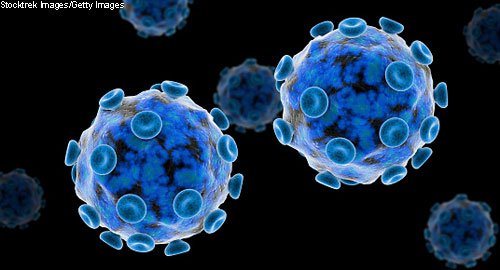 Rheumatologists are already familiar with one mosquito-borne virus, chikungunya, whose presentation mimics arthritis. Now, a new mosquito-borne flavivirus, Zika virus, is capturing headlines as it spreads through Puerto Rico and the Southeastern U.S. The mosquito-borne virus has now become an international public health concern. Like many viral infections, it can present with arthralgia and arthritis.
Rheumatologists are already familiar with one mosquito-borne virus, chikungunya, whose presentation mimics arthritis. Now, a new mosquito-borne flavivirus, Zika virus, is capturing headlines as it spreads through Puerto Rico and the Southeastern U.S. The mosquito-borne virus has now become an international public health concern. Like many viral infections, it can present with arthralgia and arthritis.
What’s more, Lancet reported in April that 42 patients were diagnosed with Guillain-Barré syndrome (GBS) during the Zika virus outbreak in French Polynesia. The authors of the paper calculated that for every 100,000 people infected with Zika virus, 24 would develop GBS.1
The Zika virus has historically been found in Africa and Southeast Asia, where it rarely caused human disease. This has changed over the past year, however, as Zika virus spread throughout Latin America and Zika virus infection has become associated with human disease. Thankfully, most Zika virus infections appear to be asymptomatic. But pregnant women are particularly vulnerable to the negative effects of a Zika virus infection, because Zika virus has now been identified as a cause of microcephaly and other severe fetal brain defects.
Although Zika virus is primarily transmitted by mosquitoes, public health officials have recently documented the sexual transmission of the virus. Up until now, all reported cases of sexual transmission of Zika virus resulted from intercourse with an infected man during, shortly before the onset of or shortly after the onset of symptomatic illness. On July 15, the New York City (NYC) Department of Health and Mental Hygiene (DOHMH) reported that a non-pregnant woman appears to have infected her male partner during a single event of condomless vaginal intercourse. The intercourse occurred on the day she returned to the U.S. after traveling to an area with an ongoing Zika virus outbreak. The following day (Day 1) she developed fever, fatigue, a maculopapular rash, myalgia, arthralgia, back pain, swelling of the extremities and numbness and tingling of the hands and feet. Three days later, the woman tested positive for Zika virus RNA in her urine and serum as determined by rRT-PCR.
The woman’s partner developed fever, a maculopapular rash, joint pain and conjunctivitis seven days (Day 6) after sexual intercourse. On Day 9, rRT-PCR testing detected Zika virus RNA in his urine, but not serum. On Day 17, the man confirmed that he had not traveled outside of the U.S. during the year before his illness and had not recently received a mosquito bite.
During multiple independent interviews, the patients consistently described illness onset, symptoms, sexual history and the woman’s travel. The case was reported by Alexander Davidson, MPH, and colleagues of the NYC DOHMH and published in Morbidity and Mortality Weekly Report (MMWR).2
Guidance for Prevention of Sexual Transmission
Current guidance from the Centers for Disease Control and Prevention (CDC) for the prevention of sexual transmission of Zika virus assumes that transmission occurs from a male partner to a receptive partner. The April guidance applies to men who have traveled to or reside in areas with active Zika virus outbreaks and their sex partners. The CDC notes that there is still only a poor understanding of the duration and pattern of Zika virus spreading in the male genitourinary tract. Absent a full understanding, the guidance recommends that men with a confirmed Zika virus infection use condoms or abstain from sex for at least six months after the onset of illness. Additionally, the guidance suggests that men who have traveled to or reside in an area with active Zika virus outbreak and their pregnant sex partners consistently use condoms during sex or abstain from sex.
The report by Mr. Davidson and his colleagues would suggest that all individuals who would like to reduce the risk of sexual transmission of Zika virus should either abstain from sex or correctly and consistently use condoms for vaginal, anal and oral sex.
Lara C. Pullen, PhD, is a medical writer based in the Chicago area.
References
- Cao-Lormeau VM, Blake A, Mons S, et al. Guillain-Barré Syndrome outbreak associated with Zika virus infection in French Polynesia: A case-control study. Lancet. 2016 Apr 9;387(10027):1531–1539.
- Davidson A, Slavinski S, Komoto K, et al. Suspected female-to-male sexual transmission of zika virus—New York City 2016. MMWR Early Release. 2016 Jul 15.
